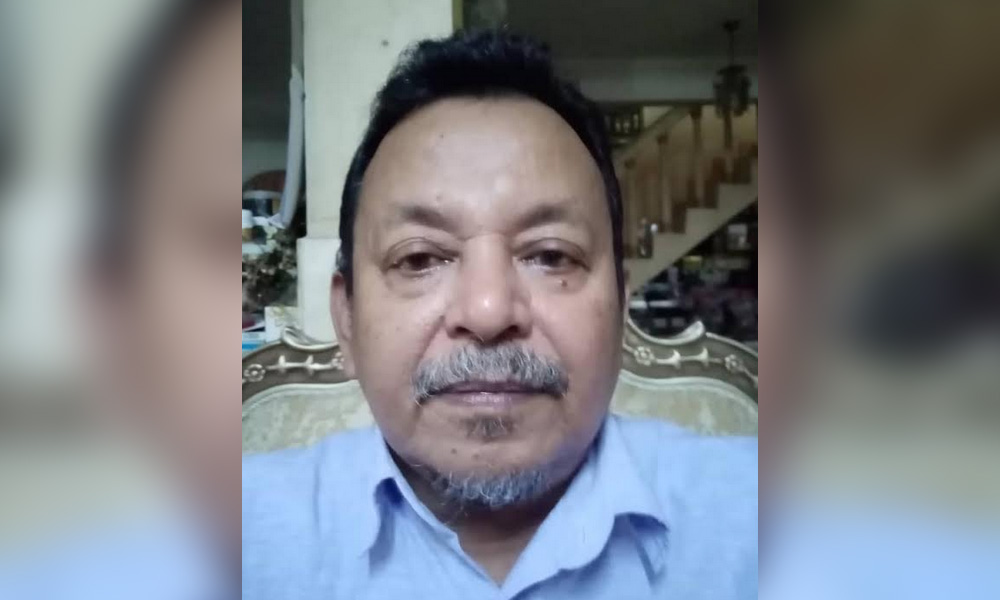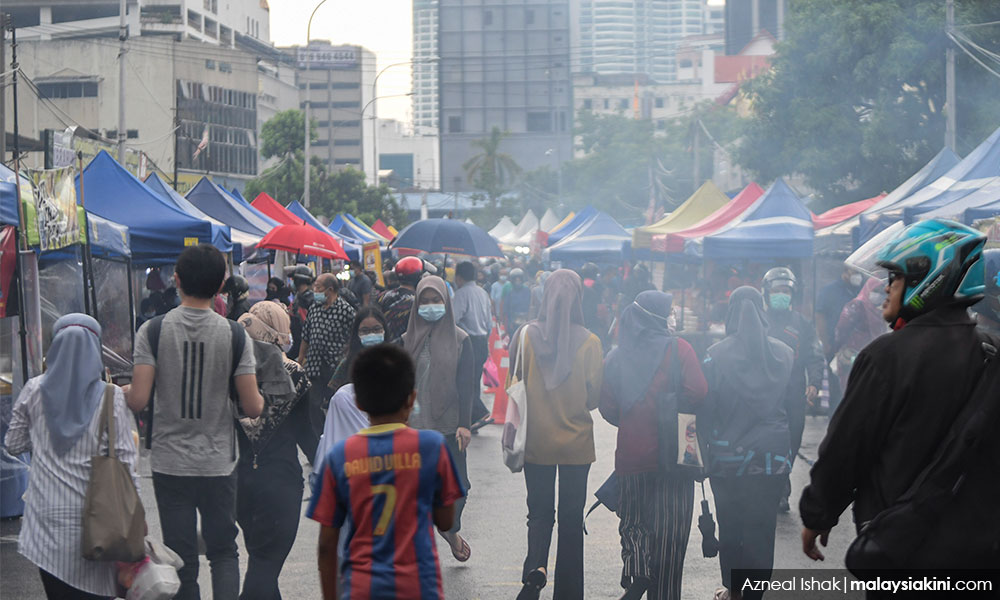'Subsidies will help improve SOP enforcement at Ramadan bazaars'
Enforcement of Covid-19 standard operating procedures (SOPs) at Ramadan bazaars can be improved if organisers get subsidies from local authorities to do so, according to the Malaysian Federation of Malay Hawkers and Petty Traders Associations (GPPPKM).
Its secretary-general Zamri Mohammed said the subsidy would help cover the cost of getting the People's Volunteer Corps (Rela) personnel to monitor the bazaars.
“To abide with the SOPs is a cost, and it is a burden to us organisers because the money is spent on Rela. We can control it better if there is a subsidy from local governments.
“You’d get what you pay for. So if you want more, you’d have to increase funding. We can get more done with the subsidy,” he told Malaysiakini.
Zamri explained that organisers and traders were facing difficulties with members of the public who stubbornly refused to follow the SOPs.
Many even opted to go through the barricades to get into the bazaar rather than to use the main entrances.
“That’s the challenge we face… the people’s stubbornness. Law enforcers can be stern because we don’t have power.
“For those who don’t obey the rules, what’s the point of queuing if they can just go under the ropes? That is why the bazaars become so crowded.
“We are not law enforcers who can take stern action to stop them, because otherwise, it could turn into a fight,” he said.
On Wednesday, Housing and Local Government Minister Zuraida Kamaruddin said Ramadan bazaars will be better organised with strict adherence to SOPs within five to six days, once local government enforcers join in monitoring the bazaars.
She added that local authorities would only need to use existing SOPs, namely to ensure social distancing and the wearing of face masks.
Footfall drops by 20 percent
Meanwhile, Zamri said even with full SOP compliance and compounds issued to the few who violate them, this could not be sustained through the entire month of Ramadan.

For now, GPPPKM committee members are chipping in to help with crowd control at the bazaars.
“In terms of cost, we’re not getting much and there is nothing further we can do. That is to say, we can’t increase the number of guards,” he said.
This is because the number of bazaar lots allowed has been reduced to provide space for social distancing, he added.
More conditions have also been imposed on bazaar traders compared to night market traders that were allowed to operate last June.
Among others, licensees and their assistants must wear a special pass provided by the organisers, as well as face masks. The wearing of face shields and disposable plastic gloves is encouraged, while disposable plastic aprons are mandatory.
Yesterday, Federal Territories Minister Annuar Musa voiced dissatisfaction towards SOP compliance at bazaars under his ministry’s purview and threatened to close them if a Covid-19 outbreak occurs. Several other state government officials have also made similar statements regarding bazaars under their jurisdiction.

Zamri said such statements worry him and he hopes it won’t come to that.
He said poor weather has already reduced the number of people at bazaars, and some still avoid bazaars for safety reasons. He expects bazaars to receive 20 percent fewer visitors this year.
For the record, this is the first time Ramadan bazaars are held since the beginning of the pandemic after last year’s bazaar was cancelled.
“Many are excited because there were no bazaars last year. It is a tradition many had been waiting for… it’s just that some who are health conscious are not coming because of the pandemic.
“So, perhaps (the number of visitors) have gone down by 20 percent. Even for people who came every day in previous years are probably coming only twice a week instead,” he added. - Mkini
✍ Credit given to the original owner of this post : ☕ Malaysians Must Know the TRUTH
🌐 Hit This Link To Find Out More On Their Articles...🏄🏻♀️ Enjoy Surfing!




















Post a Comment